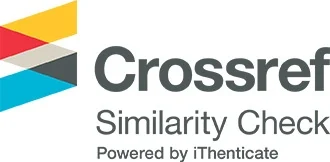Knowledge, Attitudes and Practices of Health Care Practitioners regarding Crushing or Splitting Oral Solid Dosage Forms in Benghazi Medical Centre, Libya.
DOI:
https://doi.org/10.65137/lmj.v7i1.144Abstract
Background: Crushing or splitting oral solid dosage forms is a widespread practice among health care professionals for many reasons such as swallowing difficulty or dose adjustment. However, this practice may alter drug properties in ways that can result in increased toxicity or instability.
Aim of study: This study was conducted to investigate and compare the knowledge, attitudes and practices of health care practitioners toward crushing or splitting oral solid dosage forms in Benghazi Medical Centre.
Method: A cross-sectional study employing a self-administered questionnaire was conducted during March and April 2019 among health care professionals whom working in Benghazi Medical Centre. The data was analyzed using the Statistical Package for Social Sciences.
Results and discussions: This study demonstrated that around 35.6% of the participants believed that all types of oral solid medications can be split or crushed. Interestingly, 41.9% thought that this practice does not cause dangerous problems to patients, and 24% agreed that it is allowed to crush or split Omeprazole enteric coated capsule. Moreover, 32% said that it is allowed to crush or split Carbamazepine controlled release tablets. However, Omeprazole is inactivated by acid in the stomach if it is crushed, whereas Carbamazepine is a narrow therapeutic index drug and its crushing may lead to toxicity. Overall, there was a significant difference among the participants̕ knowledge, attitudes and practices regarding crushing or splitting oral solid dosages (p value= 0.00001).
Conclusion: This study concluded that there was a lack of awareness among health care professionals toward special formulations that should not be split or crushed. The knowledge, attitudes and practices toward crushing and splitting oral solid dosages was the poorest among nurses and the best among pharmacists. Pharmacists can play a major role in educating nurses and identifying situations where crushing maybe unnecessary and suggest appropriate alternatives. Therefore, educational programs, training and collaboration between them could improve this practice.









